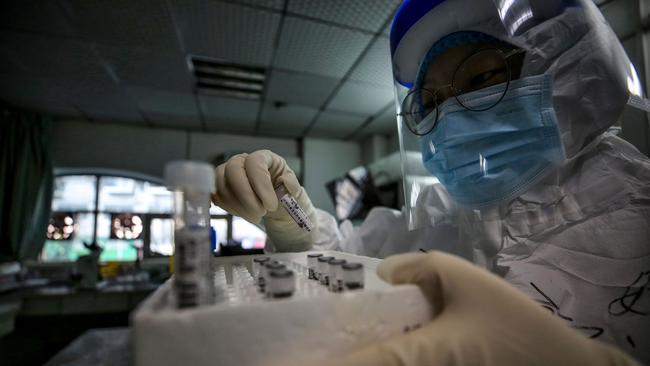New analysis of mobile phone data points to Wuhan lab accident in October
Lab or wet market? As debate continues about where COVID-19 came from, an analysis published overnight raises the possibility the virus may have escaped in an incident at the controversial Wuhan Institute of Virology as early as October of last year, writes James Morrow.

Opinion
Don't miss out on the headlines from Opinion. Followed categories will be added to My News.
Lab or wet market? The debate about where the COVID-19 coronavirus came from – and how it escaped into the world – is shaping up to be one of the most important questions of our time.
Now, startling new revelations are again pointing to the possibility that the virus may have escaped in an incident at the controversial Wuhan Institute of Virology as early as October of last year.
According to a report released overnight by America’s NBC News Verification Unit, a privately-conducted analysis of mobile phone location data suggests that the high-security lab may have shut down for three weeks over October of last year, from the 7th to the 24th of the month.

While the shutdown itself has not been confirmed, the analysis shows zero mobile phone activity at the site between those dates, suggesting that there may have been what the report calls a “hazardous event” on or around October 6.
The news comes as Beijing over the weekend threatened Australian barley farmers with trade sanctions if Canberra continued its diplomatic efforts to mount an inquiry into the coronavirus’s origins.
While evidence backing the theory that the virus escaped from the Wuhan Institute of Virology remains circumstantial, the timing is in line with reports from around the world that people began to be infected with COVID-19 far earlier than previously thought.

In China, whose data must always be viewed with a grain of salt, doctors now say the first confirmed infection can be traced back to November 17 – far earlier than previous claims by officials that the first case in Wuhan was detected on December 8, and an analysis in the prestigious medical journal The Lancet which had pinned the first detection as occurring on December 1.
This is important because it suggests that the virus may have been spreading across China and around the globe far earlier than previously imagined.

If this is the case, as is now suspected, it would have major implications for treatment of the disease, and may suggest that many may have been infected without realising it – potentially leaving them with antibodies that might now protect them from the disease.
In France, doctors now suspect that a number of what had previously thought to have been severe influenza cases reported at two Paris hospitals in December were in fact coronavirus cases.
And in California, local health officials now believe a woman who had first thought to have died of influenza in early February, long before the disease was thought to be circulating in the US, was a victim of coronavirus.
